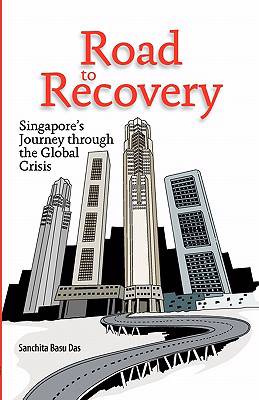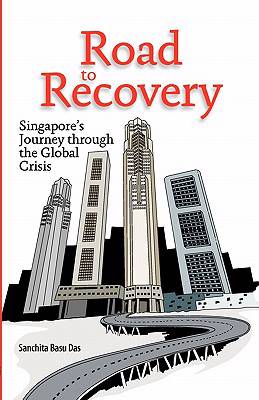
Bedankt voor het vertrouwen het afgelopen jaar! Om jou te bedanken bieden we GRATIS verzending (in België) aan op alles gedurende de hele maand januari.
- Afhalen na 1 uur in een winkel met voorraad
- In januari gratis thuislevering in België
- Ruim aanbod met 7 miljoen producten
Bedankt voor het vertrouwen het afgelopen jaar! Om jou te bedanken bieden we GRATIS verzending (in België) aan op alles gedurende de hele maand januari.
- Afhalen na 1 uur in een winkel met voorraad
- In januari gratis thuislevering in België
- Ruim aanbod met 7 miljoen producten
Zoeken
€ 39,95
+ 79 punten
Omschrijving
Singapore had been one of the nations severely affected by the 2008-09 global financial and economic crisis. The city state came under pressure through the financial, trade, and confidence channels. To counter these shocks, Singapore policymakers undertook unprecedented monetary and fiscal policy measures. They subsequently charted a revival strategy that would help the country emerge stronger after the crisis. These all-encompassing policies together with the global economic recovery in 2009 helped the city state bounce back faster and stronger than many other regional economies. This book provides an insight into the events that occurred during the crisis and Singapore's successful navigation to economic recovery. "Although much has been written about the global financial crisis of 2008-09, not enough has been said about how it affected Singapore and the policy response. In this highly readable book, Sanchita Basu Das fills this gap, explaining how the crisis rippled through the Singapore economy via trade channels, the financial sector, and asset markets. But the greatest strength of this volume is its comprehensive account of the extraordinary measures Singapore put in place to deal pre-emptively with what could have been huge declines in output and employment in the face of the collapse of trade and credit flows. Singapore's multi-pronged approach, and especially the fiscal support and loan guarantees contained in the 2009 budget, must go down as one of the boldest and most creative policy responses to a crisis. It is a valuable lesson to economics students and practitioners alike. This book gives you the full story." -Vikram Khanna, Associate Editor, The Business Times "Sanchita Basu Das is to be congratulated for providing a fascinating, accessible, and forward-looking analysis of Singapore's response to the global economic crisis of 2008-09. As a highly trade-dependent economy, Singapore was hit hard by these events. But the government was nimble and quick to react. The author describes and evaluates this response, and draws out general lessons for crisis management and mitigation in small open economies. Highly recommended." -Hal Hill, H.W. Arndt Professor of Southeast Asian Economies, Australian National University. "This is a comprehensive account of the impact of the global financial crisis on Singapore -- one of the most open economies in the world -- and policy responses by the government and central bank. The book identifies the need to move to a more knowledge-intensive economy as the key policy challenge for post-crisis Singapore." -Masahiro Kawai, Dean and CEO, Asian Development Bank Institute "Singapore was affected disproportionately by the global economic crisis of 2008-09. While it is currently rebounding impressively, government officials and the private sector would do well to learn from the crisis experience in devising future policies. Moreover, the Singapore experience is instructive as to how external economic shocks can be transmitted to open economies and, hence, has great relevance beyond its borders. This book by Sanchita Basu Das gives a comprehensive survey of Singapore in crisis and provides a wealth of information and insightful analysis, using clear, non-technical language. It is extremely useful contribution to scholars, policymakers, and other students of Asian economics." -Michael G. Plummer, Organisation for Economic Co-operation and Development (OECD)
Specificaties
Betrokkenen
- Auteur(s):
- Uitgeverij:
Inhoud
- Aantal bladzijden:
- 252
- Taal:
- Engels
Eigenschappen
- Productcode (EAN):
- 9789814311052
- Verschijningsdatum:
- 3/08/2010
- Uitvoering:
- Paperback
- Formaat:
- Trade paperback (VS)
- Afmetingen:
- 140 mm x 216 mm
- Gewicht:
- 322 g

Alleen bij Standaard Boekhandel
+ 79 punten op je klantenkaart van Standaard Boekhandel
Beoordelingen
We publiceren alleen reviews die voldoen aan de voorwaarden voor reviews. Bekijk onze voorwaarden voor reviews.









